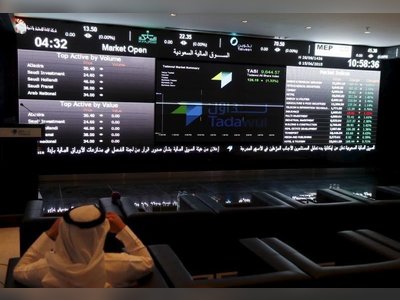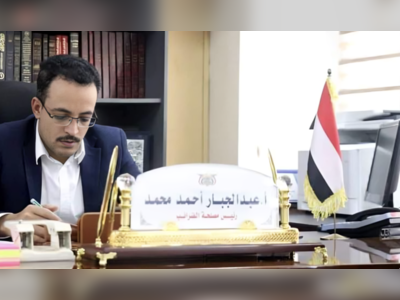COVID-19: How UAE residents have learnt to live the ‘new normal’ life
Ever since the COVID-19 pandemic changed the way we live, and the first signs of panic over a changed lifestyle pattern subsided, it has been business as usual for most people.
People all over the world quietly learned to sanitise their hands, wear face masks, maintain social distancing and within a few months this method of socialising became the ‘new normal’.
Everything that was routine or normal before went out of the window or even became anathema owing to the possibility of contracting the deadly virus. People have accepted the disruption, resumed their lives and are playing the usual game by the new rules. ‘Adapt-and-win, resist-and-lose’ the battle is the new mantra.
Business as usual
After an initial setback, people have rearranged their lives following the mandatory social protocols. So a mask is a must, be it the simple three-ply one, the impenetrable N95 or the fancy designer ones with frills and trims.
Everyone makes it a point to wear a mask. Some women might still be using their branded lip gloss or lipstick because they say “just in case, what if, the mask is off?” So women at work, at parties, at the supermarket, will put on their regular make-up, mascara and lip gloss, despite much of that being hidden behind the mask.
Alex Broun, the channel manager running the acting, music and dance sessions at Dubai’s Studio Republik, told Gulf News that he quickly adapted to wearing the face mask soon after the movement restrictions were lifted. “I have a designer mask and I have learnt to wear it literally for 12 hours a day. I only take it off when I go home to rest. All day in my classes, I have it on — so much so, that I feel odd without it.”
Broun who teaches acting feels the greatest change with masks and social distancing has been the manner in which people communicate. “Earlier, we could see people’s faces and read their emotions. Now, with social distancing and masks, it is difficult to know what the other person is actually feeling. Lack of proximity and touch has altered our method of communication and we have adapted to it.”
This lifestyle is here to stay
Broun also feels that for those who were reserved and quiet, social distancing gave them a chance to drop their act and be themselves. “Many people I know imposed a self-quarantine on themselves and do not want to go out at all. But for others who want to have this sense of community and togetherness, they have found ways of meeting their friends either virtually or at a restaurant.
In fact, we see this at Studio Republik all the time. We are busier than before and people just come to hang out here, meet friends have a meal or coffee because they know the place is sanitised and follows the rules. This way of life is here to stay and people have found ways to find their comfort zones,” said Broun.
Handshakes are out
Those in the business of recruiting and talent scouting felt the setback initially, but quickly worked around the new protocols. Kaaveh Gharachorlou, in charge of talent scouting and recruitment at an organisation, found it extremely difficult initially to go about his job.” Earlier, I was meeting so many people in a day, shaking so many hands, but once the lockdown [movement restrictions] happened, we thought it would be difficult to recruit people. But thanks to technology, we quickly shifted to video chats and phone interviews.
Our first round now is always done through video chats. We call in candidates for a personal meeting only when the interview reaches the second round. I meet up to ten people in a day and have perfected the art of social distancing, wearing masks and given up totally on handshakes!”
80 per cent of physical training is virtual now
Some of the worst-affected businesses were those that required one-on-one meetings. Hadeel Shakra, a Dubai-based freelance personal trainer, quickly adapted to the new normal and began conducting online personal training classes with the clients. “During the lockdown [movement restrictions], virtual training was the only option and I took it. Even now, although gyms have opened, nearly 80 per cent of my clients train online with me.
The rest train in gyms with me. Even at the gyms, there is absolute discipline to be followed in terms of hand sanitising, place sanitising, social distancing and wearing of masks. I always arrive ten minutes before my class to make sure everything is in place, the equipment is sanitised and my clients are safe. I think this kind of an emphasis on cleanliness and hygiene is here to stay and we all must adapt to it sooner than later.”
Video chats to the rescue
Lama Mohammad, a life coach, did not have to make major adjustments to her lifestyle as she had been working from home for the past two years and taken only one-on-one appointments with her clients. “However, during the lock down [movement restrictions], the online platform provided me with a new kind of freedom and I learnt that it was not necessary for the client to be there in person.
Today, I have overseas clients connecting in virtual chat rooms for life coaching and I have adapted to this very quickly. People have realised that nothing is impossible in the world. Until a few months ago, no one would have thought we could survive without socialising and travelling, but each of us has found ways to tackle the situation. Many people learnt a new skill, lost weight, made healthy lifestyle tweaks.”
Mohammad feels that many families have found this period to be more stress-free and allowing more family time. “Many parents come to me complaining about too much screen time that kids have with so much online learning and not much to do after school hours.
I think it is important that people create happy memories around this for their children. After a few years people will revert to old ways, so when children look back at these COVID-19 times they must have happy memories of quiet, sit-down family dinners, board games, pursuing a hobby, laughing together.”
Psychiatrist Speak
Dr Muhammad Tahir, psychiatrist at the American Wellness Centre, thinks the greatest fear that people have in times of natural disasters and pandemics is the fear of the unknown. “People initially have a panic response. They are scared, upset and find it difficult to comply with rules. But human beings are very versatile and they quickly adapt for the sake of survival.”
Dr Tahir felt when it came to adaptation there were three kinds of responses seen in human beings in general. “There is a category of people who are quick on the uptake and comply with rules. Then there are people who find the disruption very upsetting and are slow to change. The third category is those who don’t like to be told what to do and find it difficult to follow rules and are resistant to change.”
Dr Tahir also said that the current pandemic had to be evaluated for both its positive and negative impact. “I have a cardiologist friend who travelled to Canada to be with family and was stuck there for six months. He had never spent so much time with his kids and welcomed the change that gave him time to discover things about his children and create happy memories,” said Dr Tahir
But having adapted to the new normal, people are going to face some difficulty going back to the old ways in a couple of years when the vaccine works and the virus is completely wiped out, said Dr Tahir. “We have people on both end of the spectrum, those who had happy experience and then there those who were traumatised by the lockdown, confinement, lack of socialising, fear of contracting COVID 19.
So we find during this period there has been a rise in mental health issues. Suicide rates went up globally, there were people who faced a lot of trauma during the pandemic, such as loss of a loved one, loss of job and declining finances. Such people will need to be counselled for their trauma and are going to find it difficult to return to normalcy later.
”For most others, returning back to usual life will not be difficult according to Dr Tahir. “Human memory is short and healing happens fast. Soon after the lockdown [movement restrictions] were lifted here, people thronged to the malls and beaches. If and when we are able to resume our old lifestyle, we will need to be moderate and balanced and follow the government directives,” cautioned Dr Tahir.











